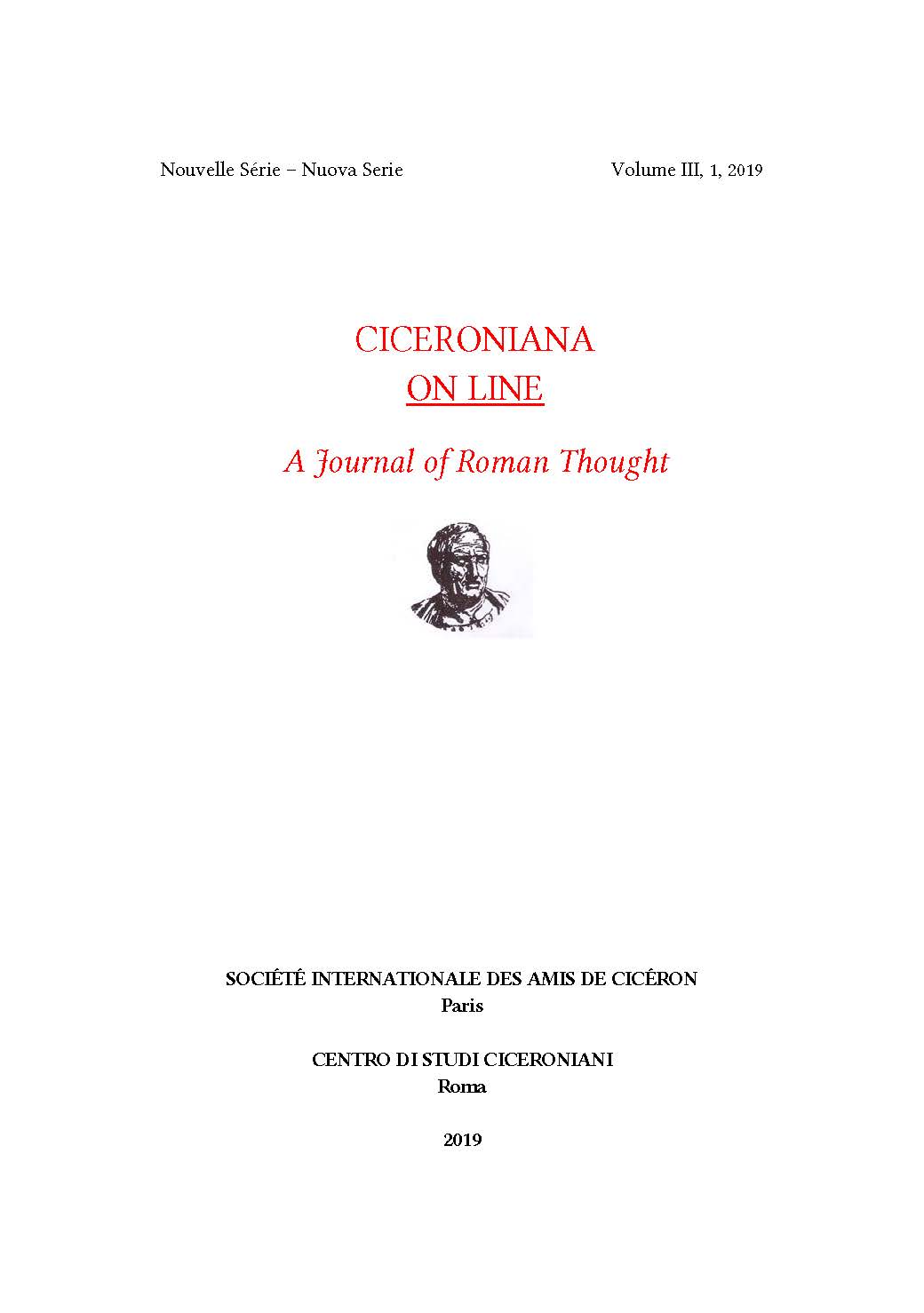Gli Epicurei romani sulla medicina: Senocle, Alessandro, Zopiro e Lucrezio - Roman Epicureans on Friendship: Xenocles, Alexandrus, Zoprius, and Lucretius
DOI:
https://doi.org/10.13135/2532-5353/3527Abstract
Il saggio ricostruisce il pensiero di quattro Epicurei romani sulla medicina: Senocle di Delfi, Alessandro e Zopiro, che figurano nei libri 2-3 delle Questioni conviviali di Plutarco, e Lucrezio. La tesi generale che si sostiene è che questi personaggi hanno in comune il fatto di essere esperti conoscitori di medicina e, nello stesso tempo, filosofi che usano questo sapere con il fine etico di condurre gli esseri umani alla felicità e alla salute. Senocle ricorre forse alla dottrina medica di Asclepiade di Bitinia per spiegare il fenomeno dell’appetito e indirizzare alla sazietà. Alessandro guarda forse alla medicina per razionalizzare e confutare il comando orfico-pitagorico di astenersi dalle fave. Zopiro e Lucrezio presentano, infine, la riflessione di Epicuro sui piaceri sessuali, invitando a coltivarli con temperanza e una prassi igienica.
The paper reconstructs the thought of four Roman Epicureans on the medicine: Xenocles of Delphi, Alexander, Zopyrus, who appear in books 2 and 3 of Plutarch’s Table Talk, and Lucretius. I argue that these characters are not only experts in medicine, but also share the common aim of making ethical use of this knowledge to lead humans towards happiness and good health. In turn, I explore the possibility that Xenocles draws on the medical doctrines of Asclepiades of Bithynia in order both to explain appetite and to exhort us to seek satiety; that Alexander uses medicine to explain and then reject the Orphic-Pythagorean injunction to abstain from beans; finally, that Zopyrus and Lucretius give an account of Epicurus’ reflection on sexual pleasure with the goal of encouraging the youth to seek it with moderation and with an hygienic regime.
Downloads
Downloads
Published
How to Cite
Issue
Section
License
Authors who publish with this journal agree to the following terms:
- Authors retain copyright and grant the journal right of first publication with the work simultaneously licensed under a Creative Commons Attribution License that allows others to share the work with an acknowledgement of the work's authorship and initial publication in this journal.
- Authors are able to enter into separate, additional contractual arrangements for the non-exclusive distribution of the journal's published version of the work (e.g., post it to an institutional repository or publish it in a book), with an acknowledgement of its initial publication in this journal.


 Ciceroniana On Line is recognised by ANVUR (the National Agency for the Evaluation of the University System and Research) as a CLASS A journal for the Sciences of Antiquity, Philology, Literature and History of Art (
Ciceroniana On Line is recognised by ANVUR (the National Agency for the Evaluation of the University System and Research) as a CLASS A journal for the Sciences of Antiquity, Philology, Literature and History of Art ( The journal is included in DOAJ. The DOAJ listing of the journals is available at
The journal is included in DOAJ. The DOAJ listing of the journals is available at  The journal is indexed in
The journal is indexed in  The journal has been included in ERIH PLUS. The ERIH PLUS listing of the journals is available at
The journal has been included in ERIH PLUS. The ERIH PLUS listing of the journals is available at 

